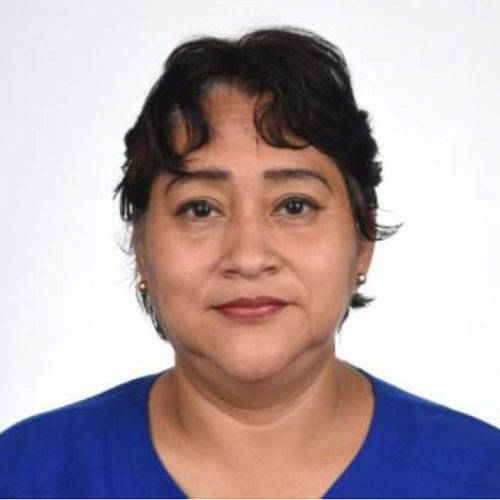Maribel Paredes Olórtegui
 Maribel Paredes Olórtegui is a biologist and public health professional with over 20 years of experience in public health research in Iquitos, Peru. She is responsible for the leadership of field teams in collecting health information and biological samples in rural communities in the Peruvian Amazon, providing oversight in the laboratory processing and analysis of biological samples, and administrative work including financial and logistical project management. She has carried out research studies in Malaria, Dengue, as well as viral and bacterial enteric diseases. Additionally, she has conducted, and lead fieldwork related to large-scale longitudinal cohort studies, and randomized clinical trials in this same setting.
Maribel Paredes Olórtegui is a biologist and public health professional with over 20 years of experience in public health research in Iquitos, Peru. She is responsible for the leadership of field teams in collecting health information and biological samples in rural communities in the Peruvian Amazon, providing oversight in the laboratory processing and analysis of biological samples, and administrative work including financial and logistical project management. She has carried out research studies in Malaria, Dengue, as well as viral and bacterial enteric diseases. Additionally, she has conducted, and lead fieldwork related to large-scale longitudinal cohort studies, and randomized clinical trials in this same setting.
Maribel supervises of public-health oriented research studies carried out in collaboration between A.B. Prisma (a Peruvian nongovernmental organization) and Universities including Cayetano-Heredia University, University of Virginia, Johns Hopkins Bloomberg School of Public Health, Duke University, Tulane University and University of California – San Diego. She believes that research can transform nutritional and health outcomes, particularly in resource limited settings such as Iquitos. She is profoundly motivated to assume leadership in scholarship to improve programmatic change in health services delivery to improve health and nutritional outcomes.
Furthermore, Maribel is convinced that insight and dedicated research can improve child health and nutrition. She has worked in health care research for my entire career. As an undergraduate she was hired as an interviewer/ observer to document the use of impregnated bednets for the control of malaria. She went on to work in a survey of respiratory pathogens to measure drug resistance in pneumococcus. She then began to work in birth cohort studies, first on Shigella and later as the project manager of the MAL-ED Peru site. In other words, she has seen her research change clinical practice. The research team’s description of highly antibiotic resistant shigellosis changed empiric antibiotic therapy for dysentery, first at the regional and then at the national level. The work in malaria also changed the consensus opinion regarding the diversity of malaria vector in Loreto, where nearly 90% of the cases of malaria in Peru occur.
Maribel is pursuing a PhD at the Universidad Nacional de La Amazonia Peruana School of Public Health. Currently, she is a UW EFGH Rising Star Awardee studying “Barriers to care seeking for acute diarrheal illness in Peru.”